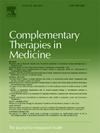Efficacy and safety of acupuncture for weight management: A systematic review and meta-analysis of randomized controlled trials
IF 3.5
3区 医学
Q1 INTEGRATIVE & COMPLEMENTARY MEDICINE
引用次数: 0
Abstract
Introduction
Obesity is a chronic health problem worldwide, leading to an increased focus on weight management. Acupuncture is widely used in weight loss as traditional and complementary medicine because of its economy, simplicity, and safety. This study aimed to identify the latest evidence on acupuncture for weight loss and evaluate the efficacy and safety of the included randomized controlled trials (RCTs).
Methods
Seven databases were searched to identify RCTs published since January 2013 on using acupuncture for weight management. The STRICTA, CONSORT, and Cochrane Collaboration’s Risk of Bias tools were used to evaluate the included trials’ quality and risk of bias. All eligible trials were included in this meta-analysis.
Results
Sixty-four trials were included. Compared to control groups, acupuncture had a significant effect on BMI (mean difference (MD) = -2.15, 95 % confidence interval (CI) = -2.86 to −1.44, P < 0.01), body weight (MD = −2.67, 95 % CI = −4.07 to −1.28, P < 0.01), waist circumference (MD = −3.61, 95 % CI = −4.72 to −2.50, P < 0.01), and some blood test indicators. Serious adverse events were not observed. However, the quality of the included trials was generally poor, and the risk of bias was uncertain.
Conclusions
Our study showed that acupuncture is effective for weight management. However, there are no clear conclusions regarding its safety. Studies of higher quality and longer duration are needed to improve the evidence base of acupuncture in weight management for clinical reference.
针灸体重管理的有效性和安全性:随机对照试验的系统回顾和荟萃分析。
肥胖症是一种全球性的慢性健康问题,导致人们越来越关注体重管理。针灸因其经济、简单、安全等优点,作为传统和补充医学被广泛应用于减肥。本研究旨在确定针灸减肥的最新证据,并评估纳入的随机对照试验(RCTs)的有效性和安全性。方法:检索7个数据库,检索2013年1月以来发表的关于针灸体重管理的随机对照试验。使用STRICTA、CONSORT和Cochrane协作的偏倚风险工具评估纳入试验的质量和偏倚风险。所有符合条件的试验均纳入本荟萃分析。结果:共纳入64项试验。与对照组相比,针刺对BMI(平均差值(MD) = -2.15, 95%可信区间(CI) = -2.86 ~ -1.44, P < 0.01)、体重(MD = -2.67, 95% CI = -4.07 ~ -1.28, P < 0.01)、腰围(MD = -3.61, 95% CI = -4.72 ~ -2.50, P < 0.01)及部分血检指标均有显著影响。未观察到严重的不良事件。然而,纳入的试验质量普遍较差,偏倚风险不确定。结论:我们的研究表明针灸对体重管理是有效的。然而,关于其安全性尚无明确结论。需要更高质量、更长的研究来完善针灸体重管理的证据基础,以供临床参考。
本文章由计算机程序翻译,如有差异,请以英文原文为准。
求助全文
约1分钟内获得全文
求助全文
来源期刊

Complementary therapies in medicine
医学-全科医学与补充医学
CiteScore
8.60
自引率
2.80%
发文量
101
审稿时长
112 days
期刊介绍:
Complementary Therapies in Medicine is an international, peer-reviewed journal that has considerable appeal to anyone who seeks objective and critical information on complementary therapies or who wishes to deepen their understanding of these approaches. It will be of particular interest to healthcare practitioners including family practitioners, complementary therapists, nurses, and physiotherapists; to academics including social scientists and CAM researchers; to healthcare managers; and to patients. Complementary Therapies in Medicine aims to publish valid, relevant and rigorous research and serious discussion articles with the main purpose of improving healthcare.
 求助内容:
求助内容: 应助结果提醒方式:
应助结果提醒方式:


